Toyota Corolla continues to stand the test of time
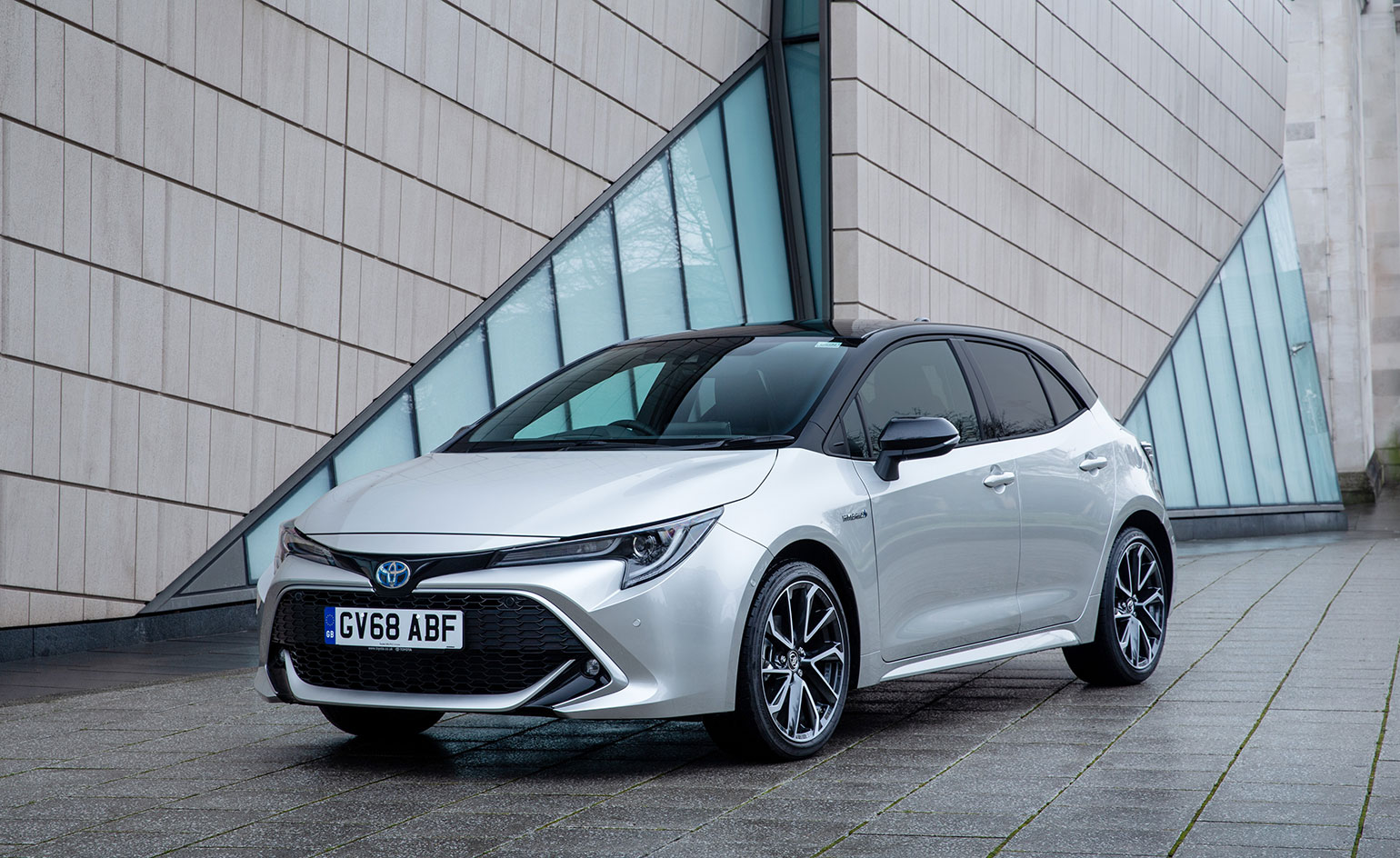
Car manufacturing is one of the most highly evolved industrial processes in history. Billions of cars have been built over the past century, with each and every one serving exactly the same purpose. Over time, the process of making cars has become refined to the point of perfection; arguably it is now technology and usage requirements that have been left behind.
Such big questions spring to mind when you get behind the wheel of the latest iteration of Toyota’s venerable Corolla, now the best-selling car nameplate of all time. The name was first introduced in 1966 and has remained a constant in the Toyota range ever since. This newest version is the 12th generation of a nameplate that has sold 45 million examples to date, defiantly occupying the middle market in terms of taste, price and presentation. It is the Samsung Galaxy of cars, as opposed to the iPhone, a technological marvel whose many innovations have been normalised over literally decades of production and millions of examples.
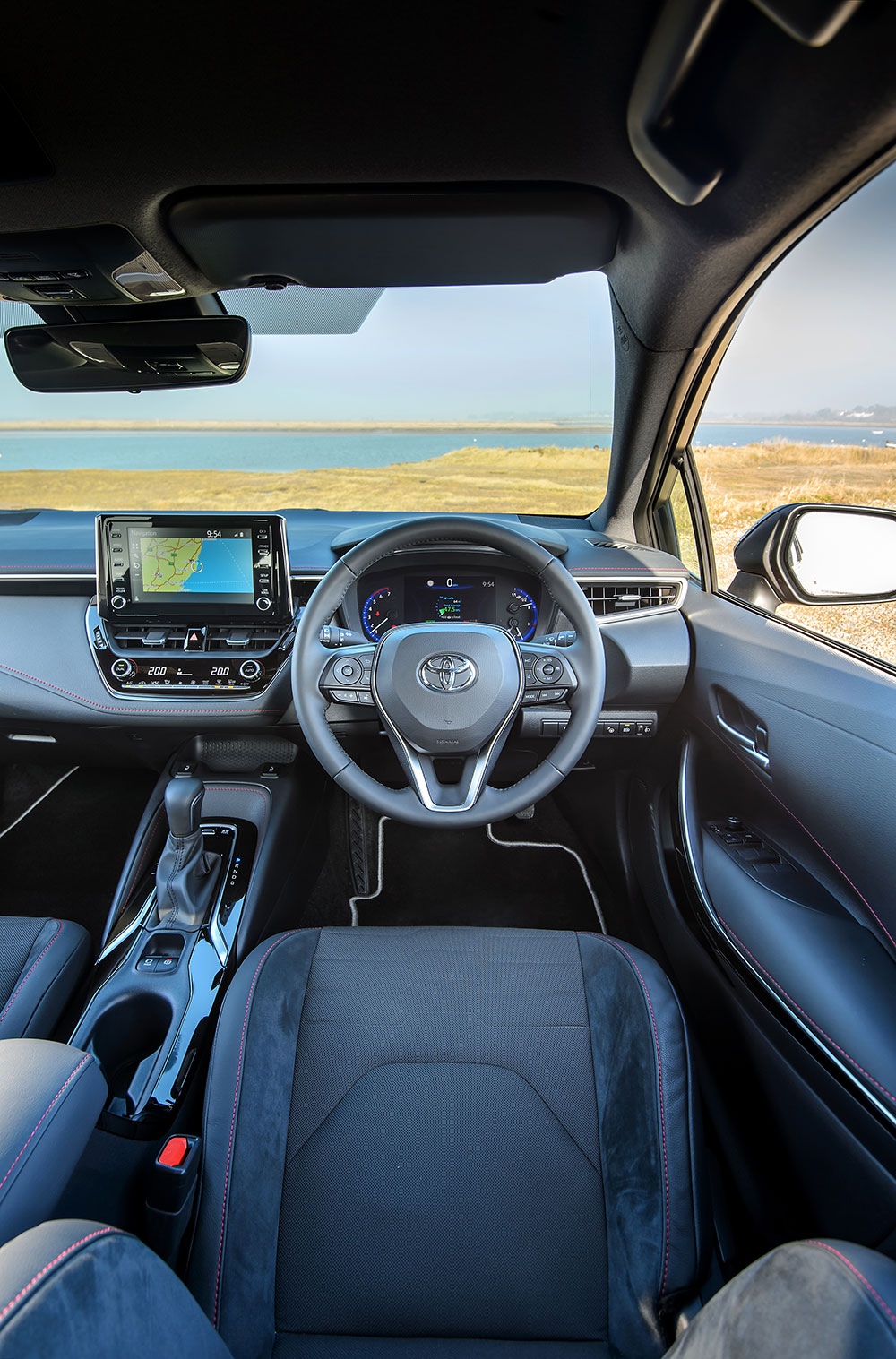
And not just any production. The Toyota method of making stuff is the de facto standard for the modern car factory, a form of just-in-time manufacturing that focuses with laser-like intensity on every detail, constantly honing processes until there is not a wasted second or superfluous screw. Toyota’s own educational material suggests that the 30,000 or so components that go into a car can be assembled from raw material into finished product in around 17-18 hours, regardless of whether that’s at the mothership factories in Nagoya, or its many subsidiaries around the world, including Burnaston in Derbyshire, which assembles Corollas for Europe.
In the past, such mechanised perfection might have brought accusations of bland, personality-free products. To a certain extent, they would be right, but there’s no place for banality in the current car market; character is as fundamental to a successful car as efficiency and safety. The Corolla’s character has definitely evolved and while no-one would call this car the life and soul of a parking lot, the new model is light years ahead of its forebears and frankly the equal of any comparable car on sale today. While the big German and French brands shout loudly about heritage, design and dynamics, the Corolla just gets on quietly with being really, really good.
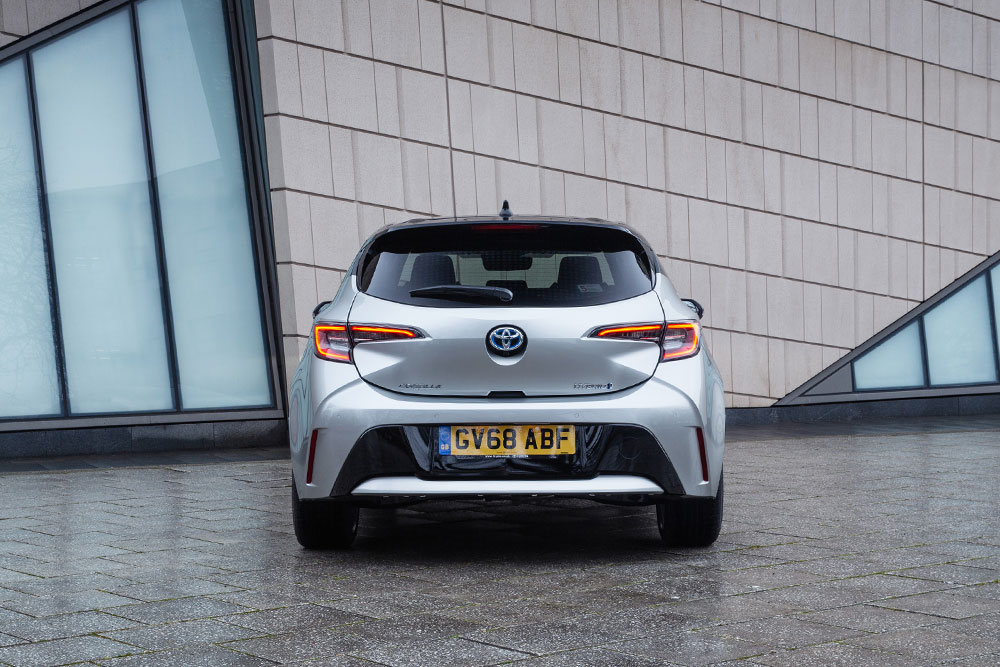
A seamless hybrid system, refined through the company’s ongoing intensive focus on the technology, underpins this top spec Excel 2.0 Hatchback. There are lower specs (including hybrid-free models) and smaller engines available, as well as a pricier and marginally more practical Touring Sports model, but the hybrid is the sweet spot. Designed to maximise the amount of time you spend running on pure electric power, Toyota’s full hybrid system captures as much regenerative charge as possible from the engine and brakes, all the while tracking your ability to be efficient.
In some hybrids, this gamification of the driving process is a welcome distraction from the fact the car itself is rather dull, but the new Corolla doesn’t let the side down anywhere. It’s more than pleasant to drive, the interior spec is high with good infotainment and mapping, the hybrid is smooth, the ride relaxing and to top it all, it’s actually pretty decent to look at. In fact, we’d go so far as to say that this is one of the most refined mass-market Japanese car designs of recent years, with curves and swoops that finally have purpose and cohesion. It’s far from showy, of course, and brand imagery and associations have a long, long tail, so many might dismiss this car out of hand without giving it a chance. They shouldn’t, because the newest Corolla is a fine piece of contemporary design and an even better car.
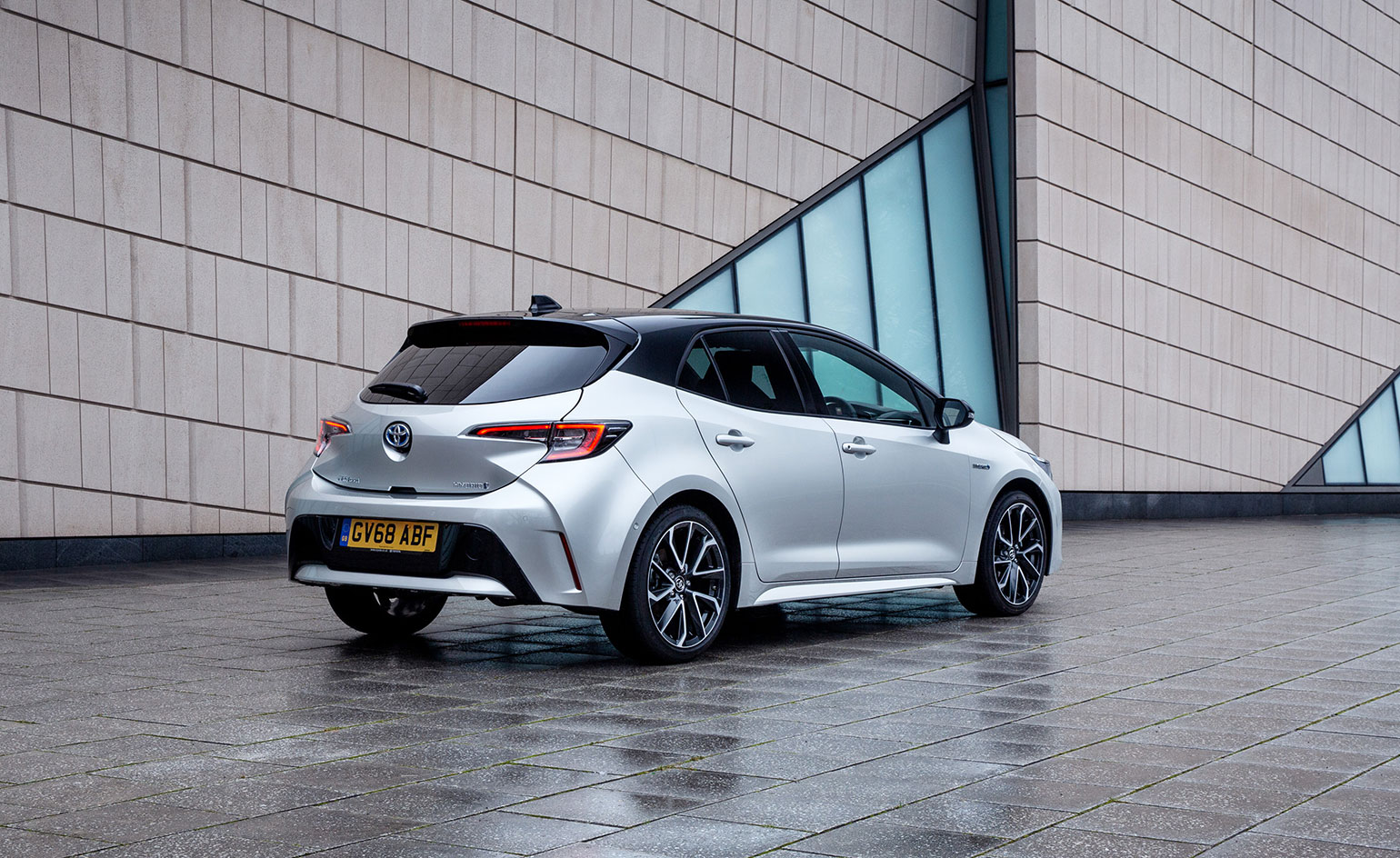
INFORMATION
Toyota Corolla Excel 2.0 hybrid, from £27,555. toyota.co.uk
Wallpaper* Newsletter
Receive our daily digest of inspiration, escapism and design stories from around the world direct to your inbox.
Jonathan Bell has written for Wallpaper* magazine since 1999, covering everything from architecture and transport design to books, tech and graphic design. He is now the magazine’s Transport and Technology Editor. Jonathan has written and edited 15 books, including Concept Car Design, 21st Century House, and The New Modern House. He is also the host of Wallpaper’s first podcast.
-
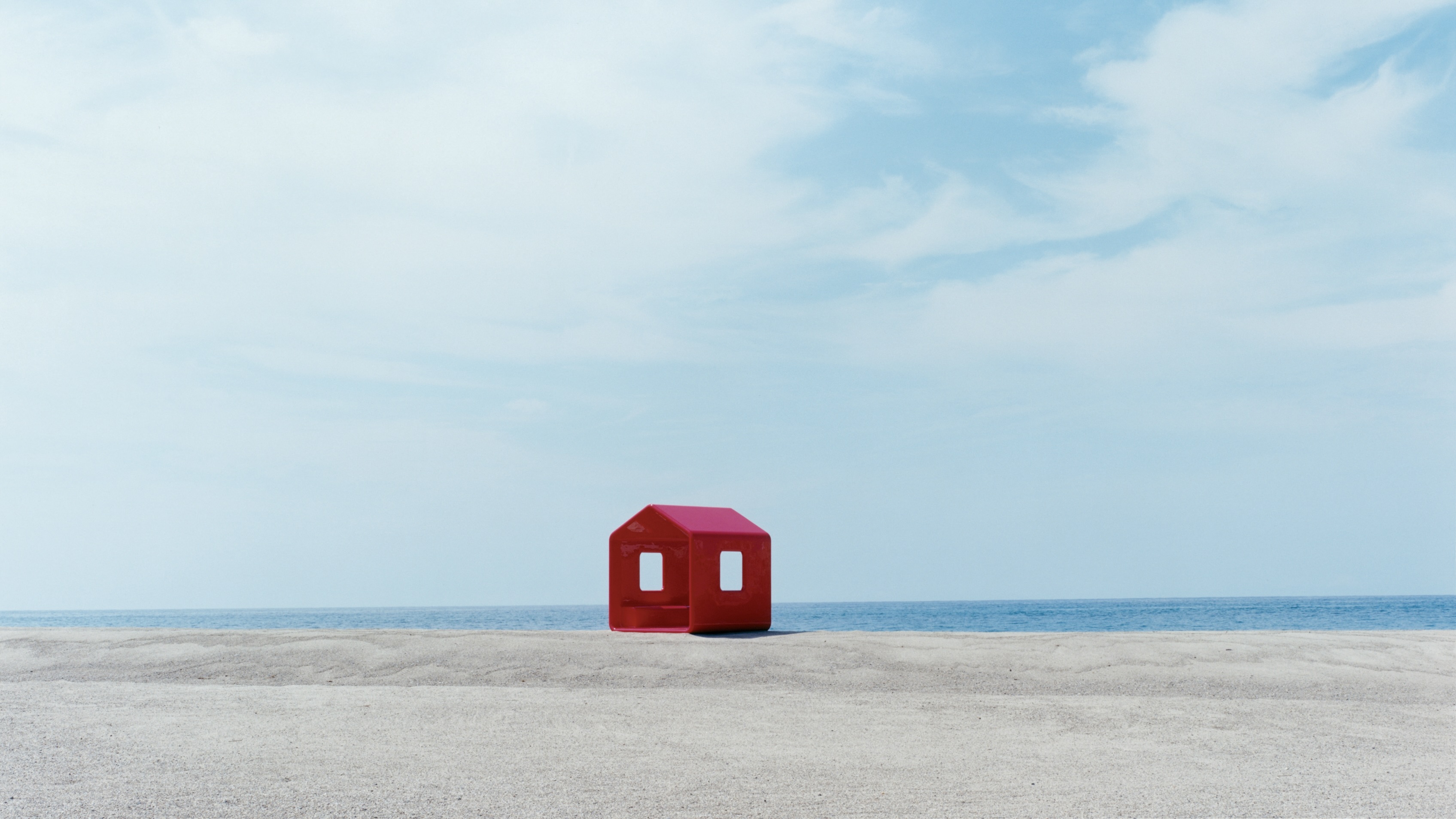 Naoto Fukasawa sparks children’s imaginations with play sculptures
Naoto Fukasawa sparks children’s imaginations with play sculpturesThe Japanese designer creates an intuitive series of bold play sculptures, designed to spark children’s desire to play without thinking
By Danielle Demetriou
-
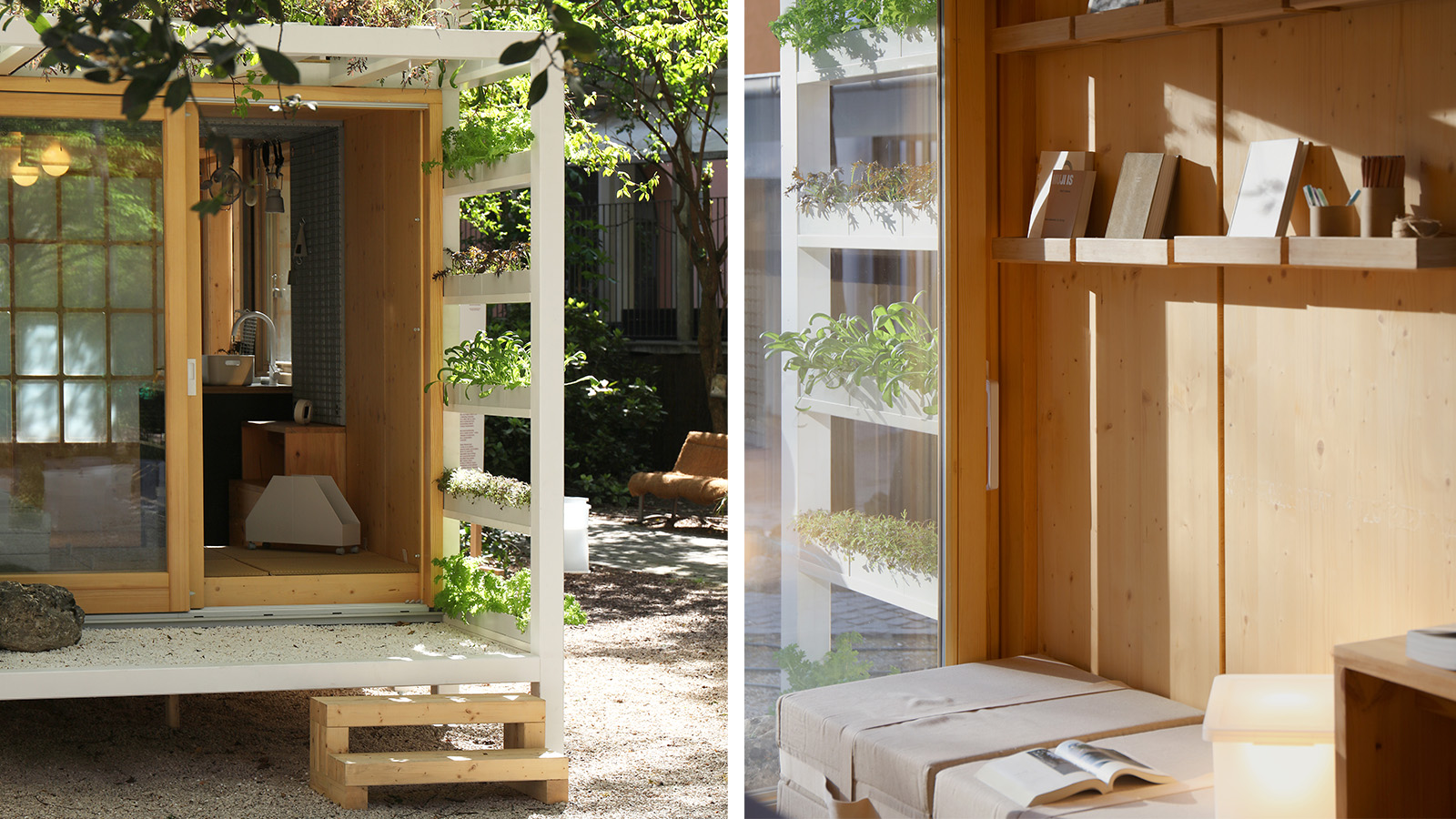 Japan in Milan! See the highlights of Japanese design at Milan Design Week 2025
Japan in Milan! See the highlights of Japanese design at Milan Design Week 2025At Milan Design Week 2025 Japanese craftsmanship was a front runner with an array of projects in the spotlight. Here are some of our highlights
By Danielle Demetriou
-
 Tour the best contemporary tea houses around the world
Tour the best contemporary tea houses around the worldCelebrate the world’s most unique tea houses, from Melbourne to Stockholm, with a new book by Wallpaper’s Léa Teuscher
By Léa Teuscher
-
 2025 Seoul Mobility Show report: all that's new and notable
2025 Seoul Mobility Show report: all that's new and notableOpened at a time of high national drama, the 2025 Seoul Mobility Show has gone on to underscore Korea’s place at the cutting edge of the auto industry. Guy Bird was there
By Guy Bird
-
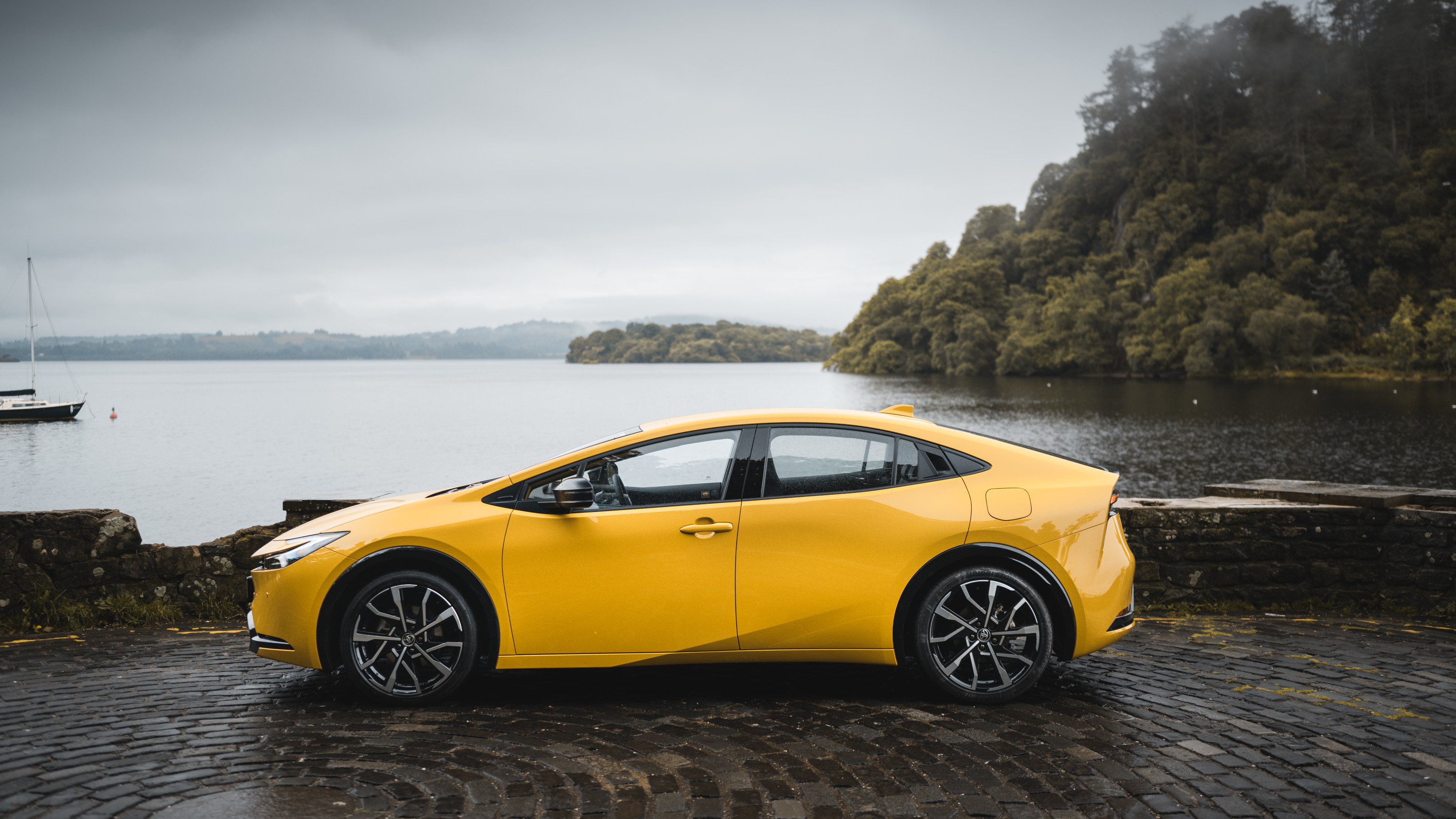 Why the Toyota Prius is the stealthiest and most discreet automotive choice you can make
Why the Toyota Prius is the stealthiest and most discreet automotive choice you can makeThe billions that Toyota poured into hybrid development has paid off. We sample the stylish fifth-generation Prius and reckon it’s the best yet
By Jonathan Bell
-
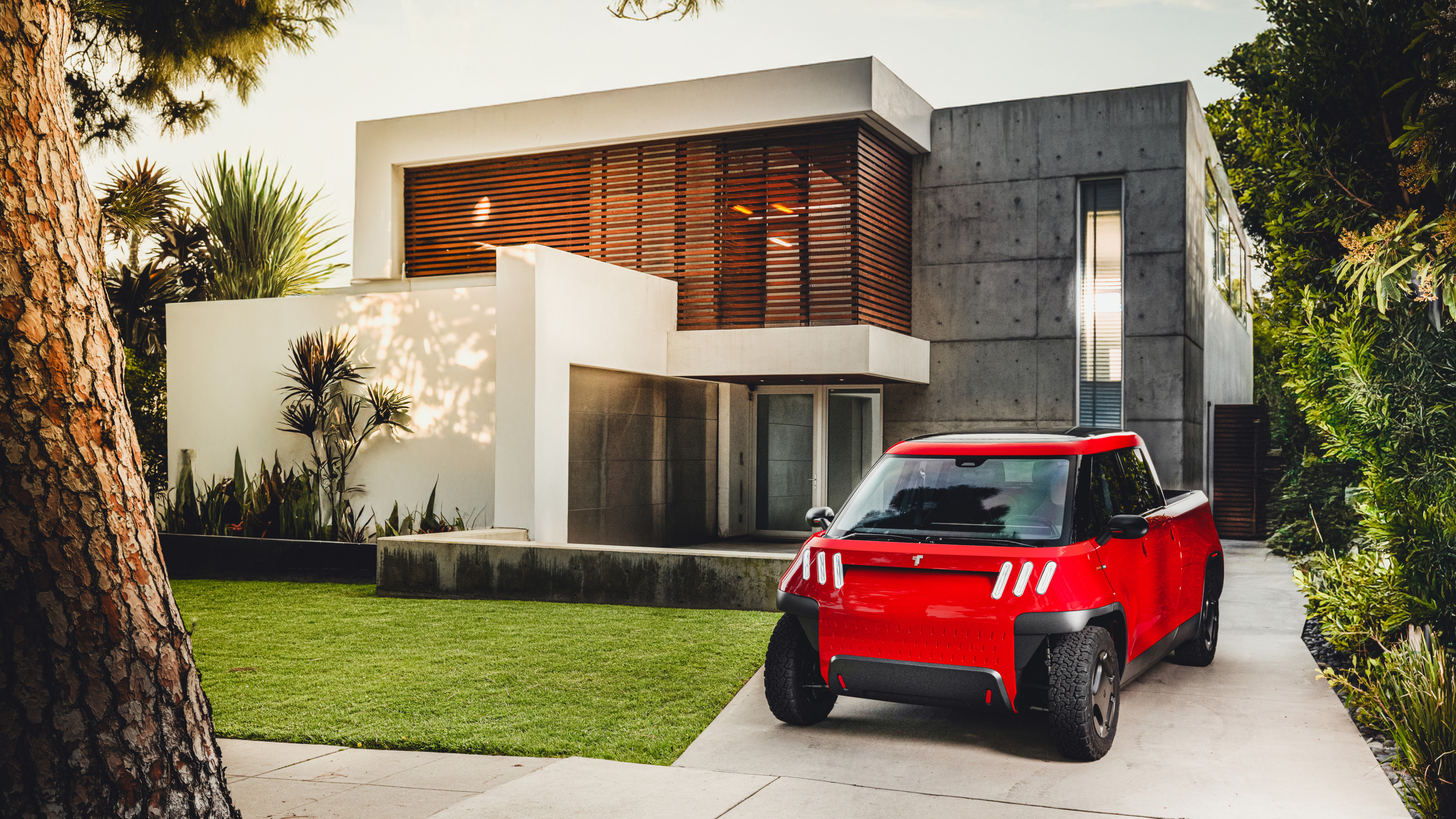 Meet the final drivable prototype of the Telo MT1 pickup truck, shaped by Fuseproject
Meet the final drivable prototype of the Telo MT1 pickup truck, shaped by FuseprojectThe Telo MT1 is a modestly scaled EV that turns the traditional all-American approach to pick-up truck design on its head
By Jonathan Bell
-
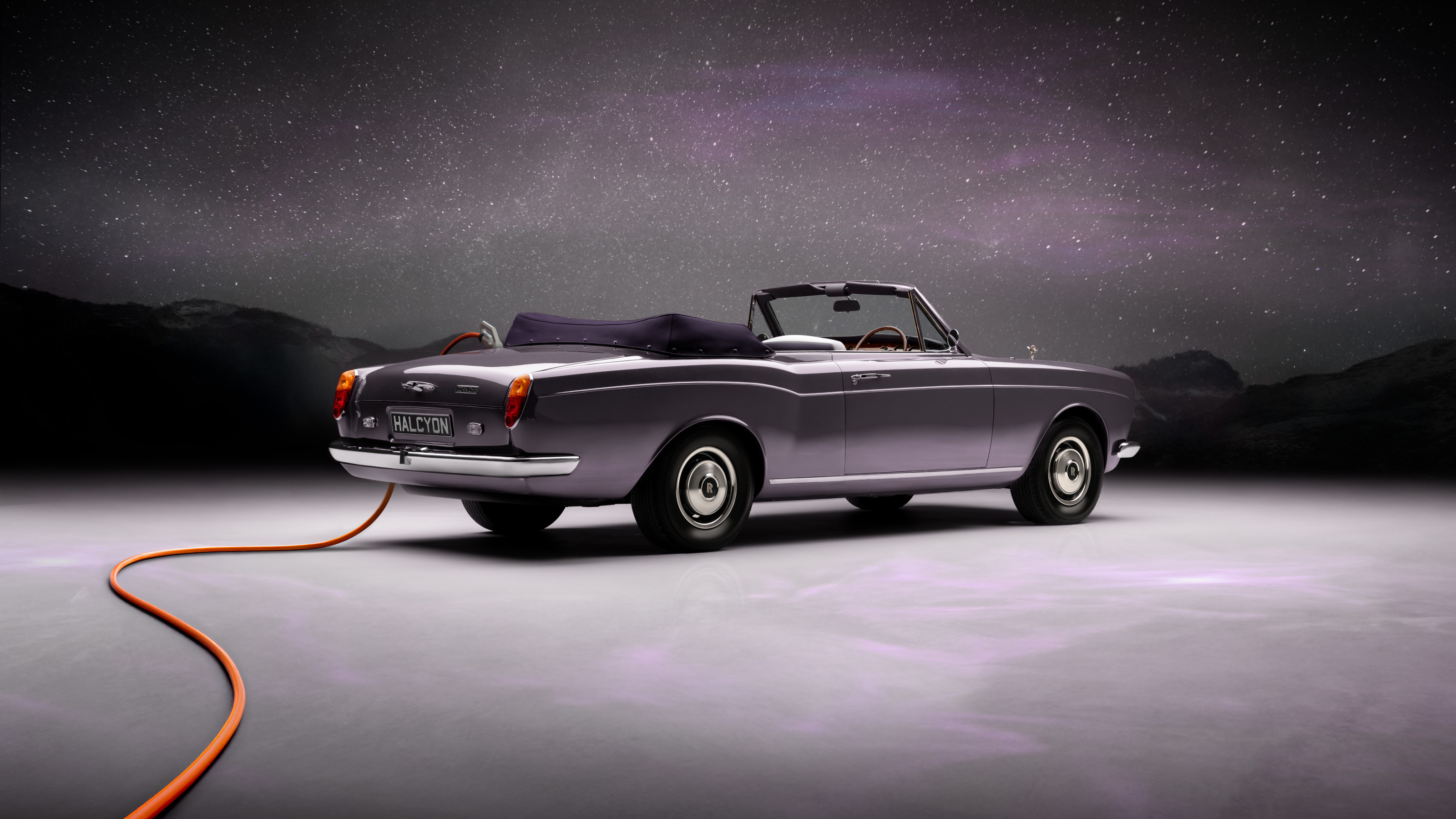 EV start-up Halcyon transforms a classic 1970s Rolls-Royce into a smooth electric operator
EV start-up Halcyon transforms a classic 1970s Rolls-Royce into a smooth electric operatorThis 1978 Rolls-Royce Corniche is the first fruit of a new electric restomod company, the Surrey-based Halcyon
By Jonathan Bell
-
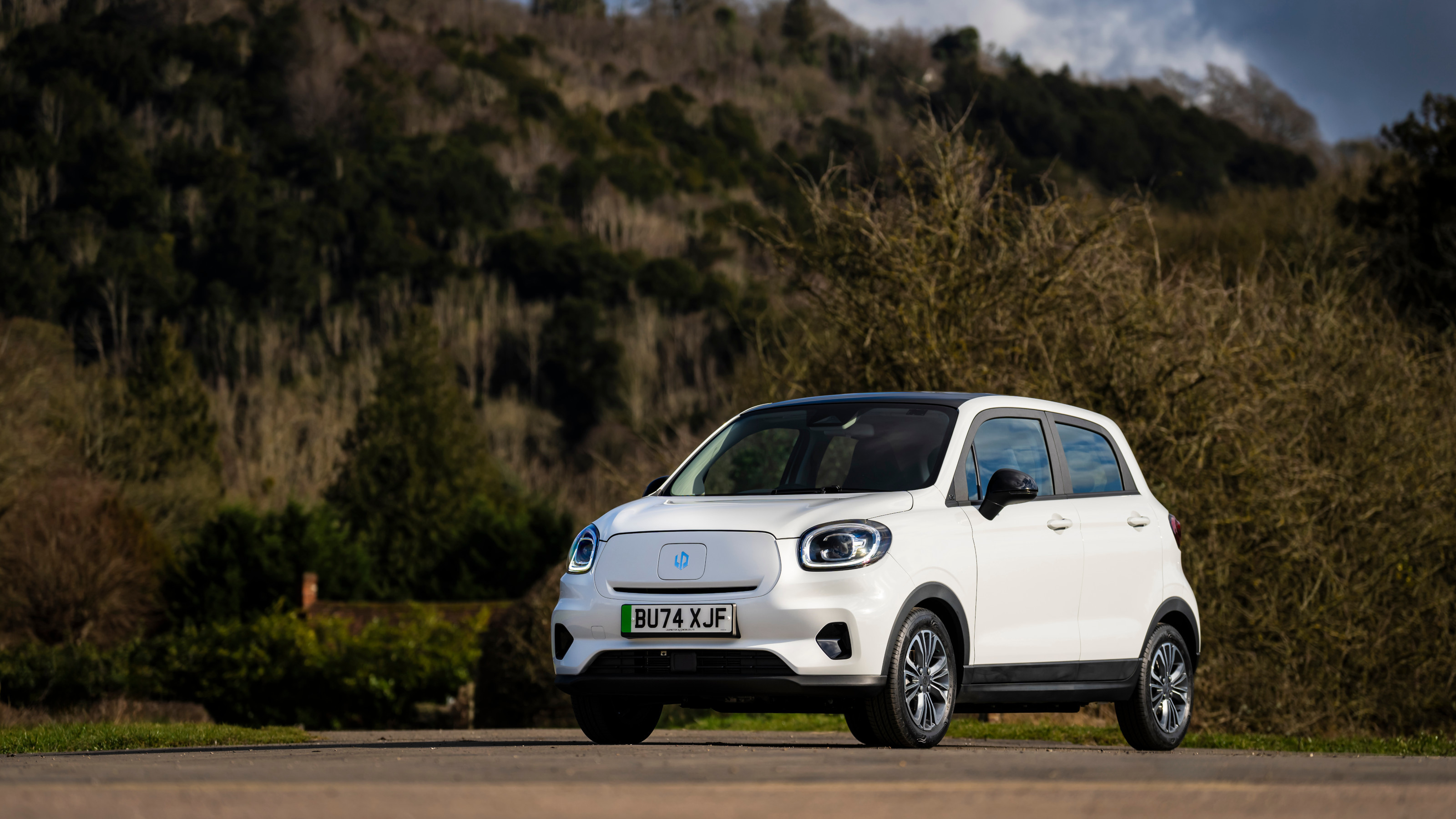 China’s Leapmotor pounces on the European car market with its T03 city car and C10 SUV
China’s Leapmotor pounces on the European car market with its T03 city car and C10 SUVLeapmotor’s tiny electric city car could be just the tonic for cramped urban Europe. We sample the T03 and its new sibling, the fully loaded C10 SUV, to see if the company’s value proposition stacks up
By Jonathan Bell
-
 Wallpaper* takes the wheel of the Bentley Blower Jnr for a rich automotive experience
Wallpaper* takes the wheel of the Bentley Blower Jnr for a rich automotive experienceHedley Studios has shrunk the mighty Bentley Blower into this all-electric, road-legal barnstormer. We take it to the streets of London
By Jonathan Bell
-
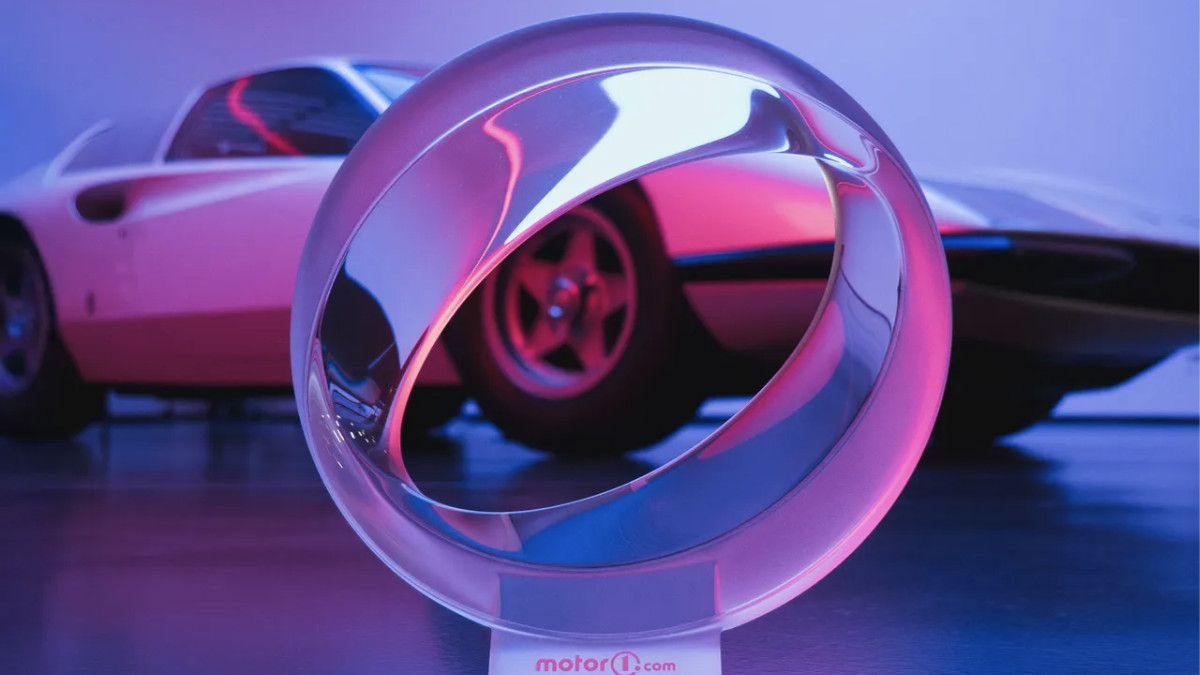 We are the world: Pininfarina’s ‘Orbis’ taps Papal support for an eco-friendly agenda
We are the world: Pininfarina’s ‘Orbis’ taps Papal support for an eco-friendly agendaThe Orbis is a ‘symbolic object’, a gift to Pope Francis from the Italian design agency at a time of political upheaval and social fracture around all aspects of sustainability
By Jonathan Bell
-
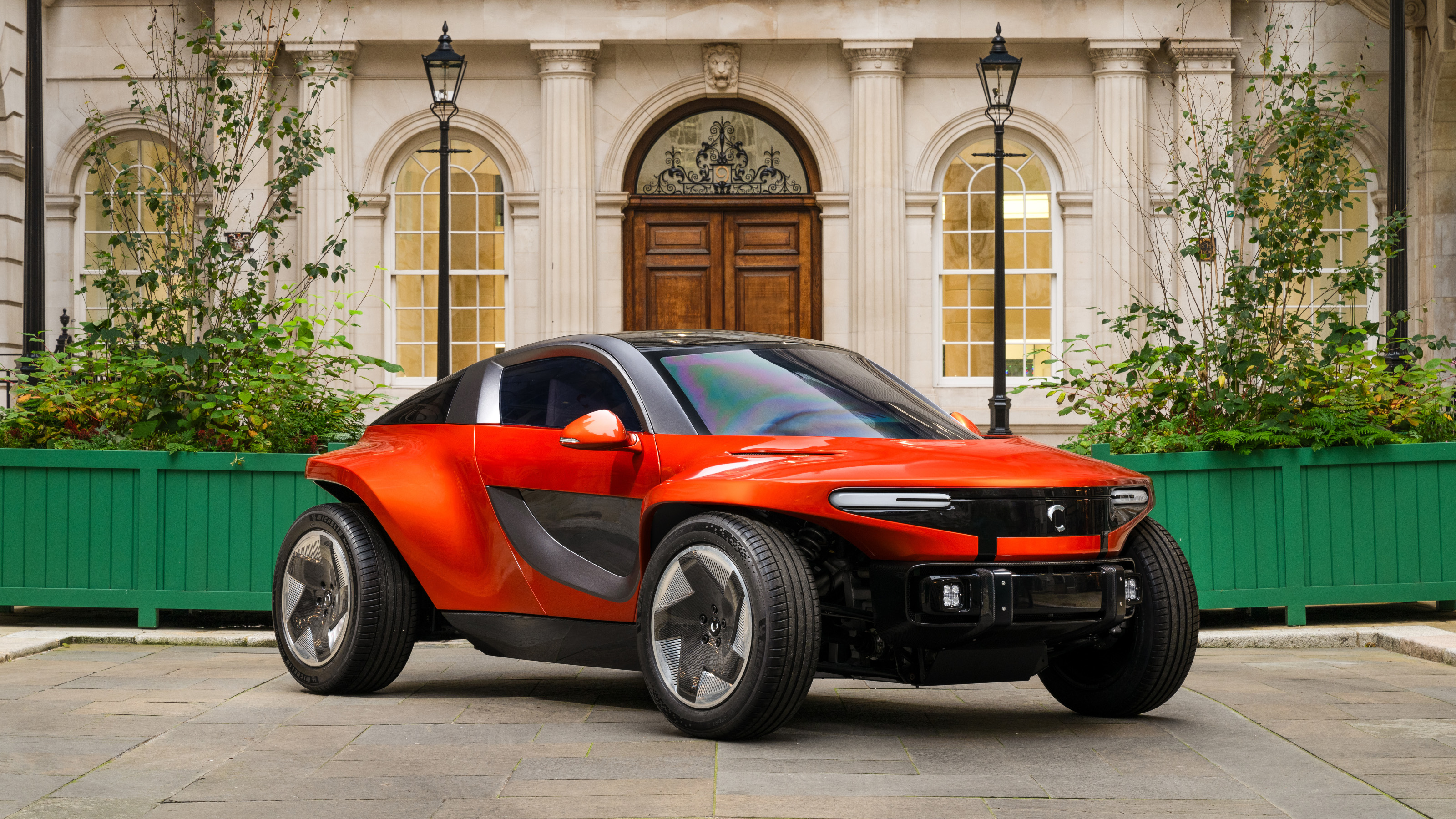 The exclusive Callum Skye EV reveals its interior style ahead of a 2025 launch
The exclusive Callum Skye EV reveals its interior style ahead of a 2025 launchThe Skye is a bespoke sporting EV with a lightweight ethos and an unconventional design. The forthcoming car now has a fully finished interior
By Jonathan Bell